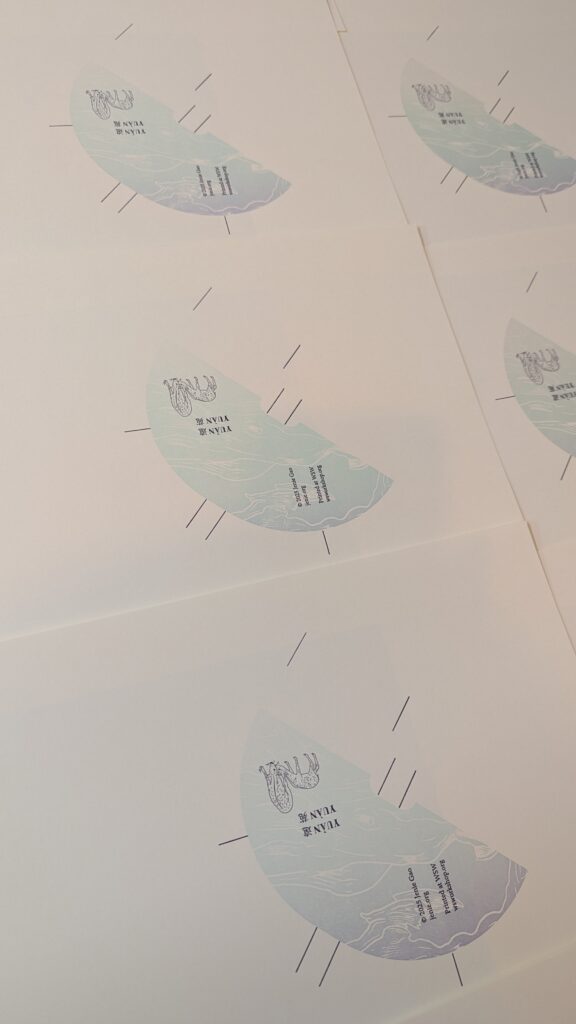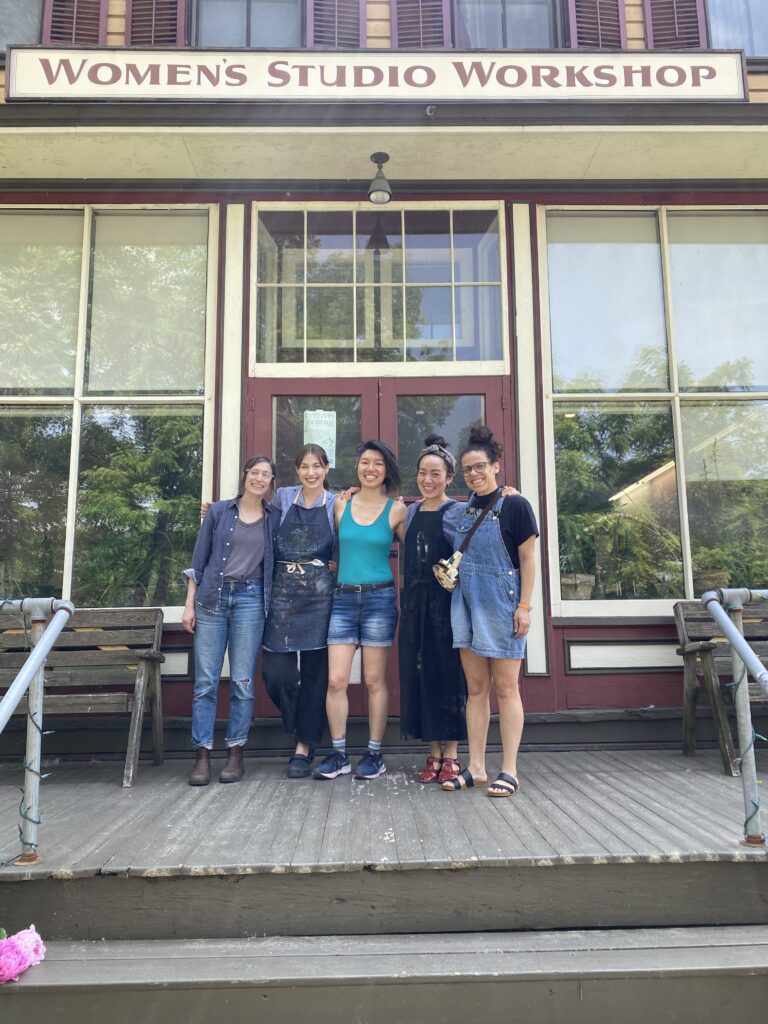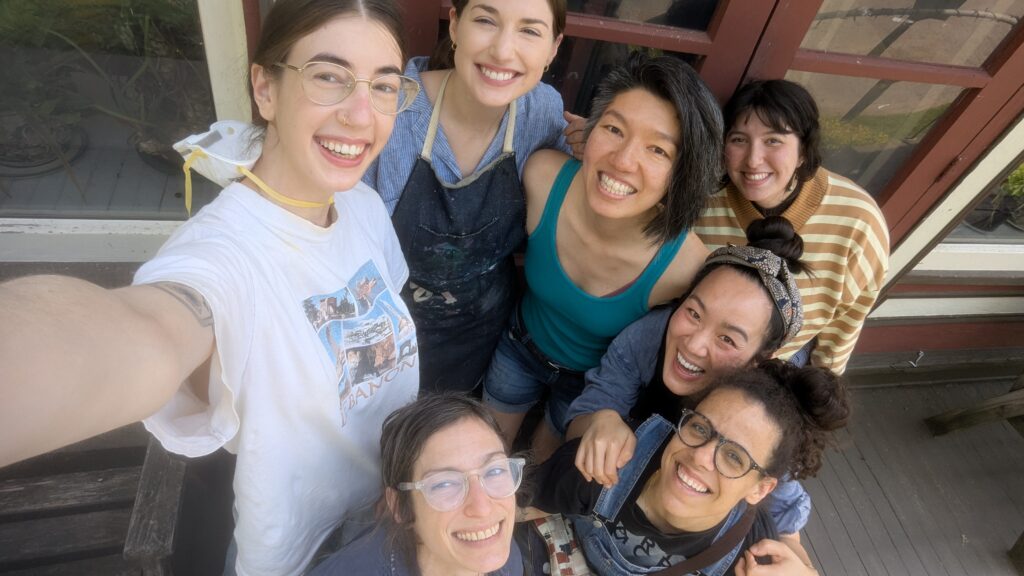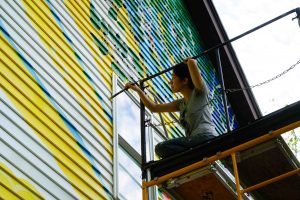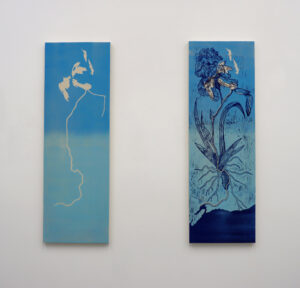I have concluded a wonderful and prolific 6-week art residency at Women’s Studio Workshop, where I produced the newest sculptural woodcut in The Negotiation Table series. I also created—from concept to editioning—the page spreads and covers for a new artists’ book that will debut later this year.
If you find yourself in the Hudson Valley of New York (land of the Lenape peoples), I highly recommend visiting WSW. This place is a gem and I am honored to have gotten to create work and community here.
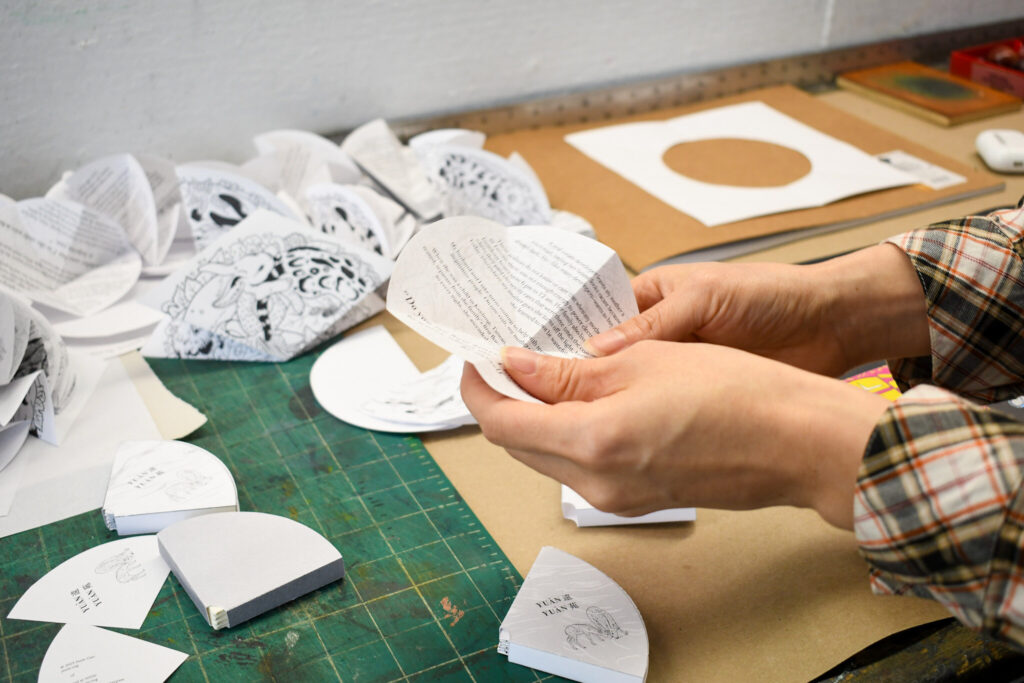
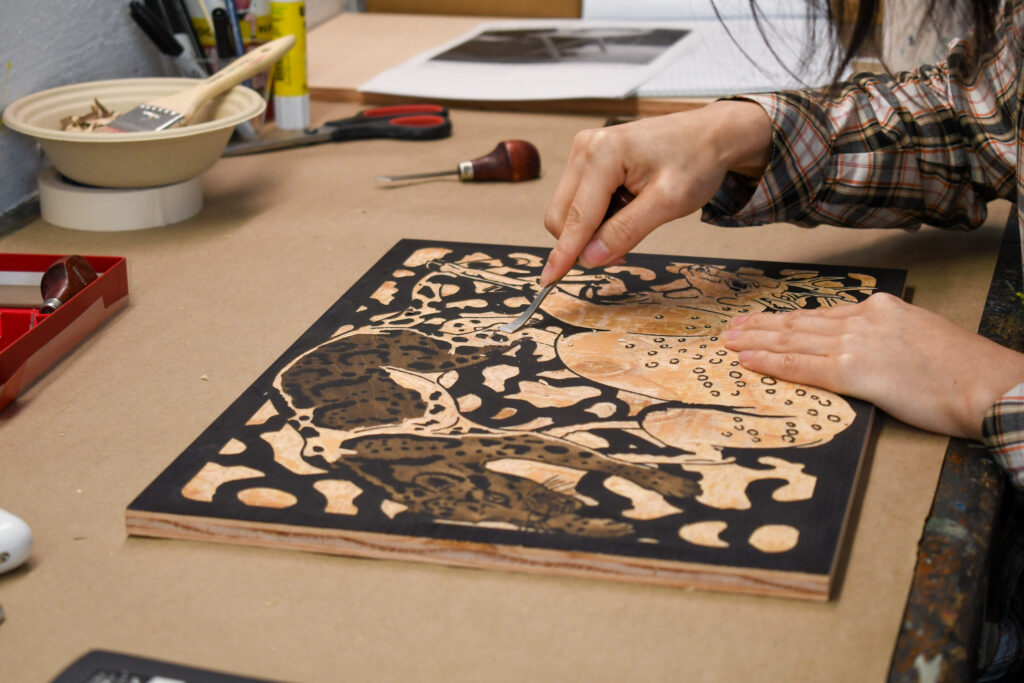
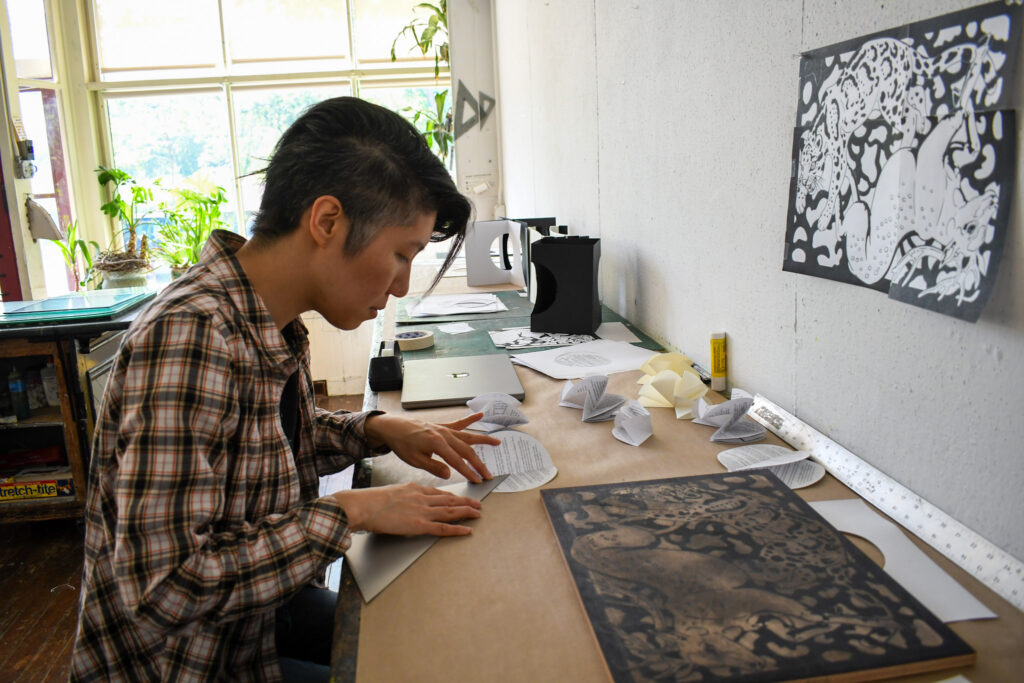
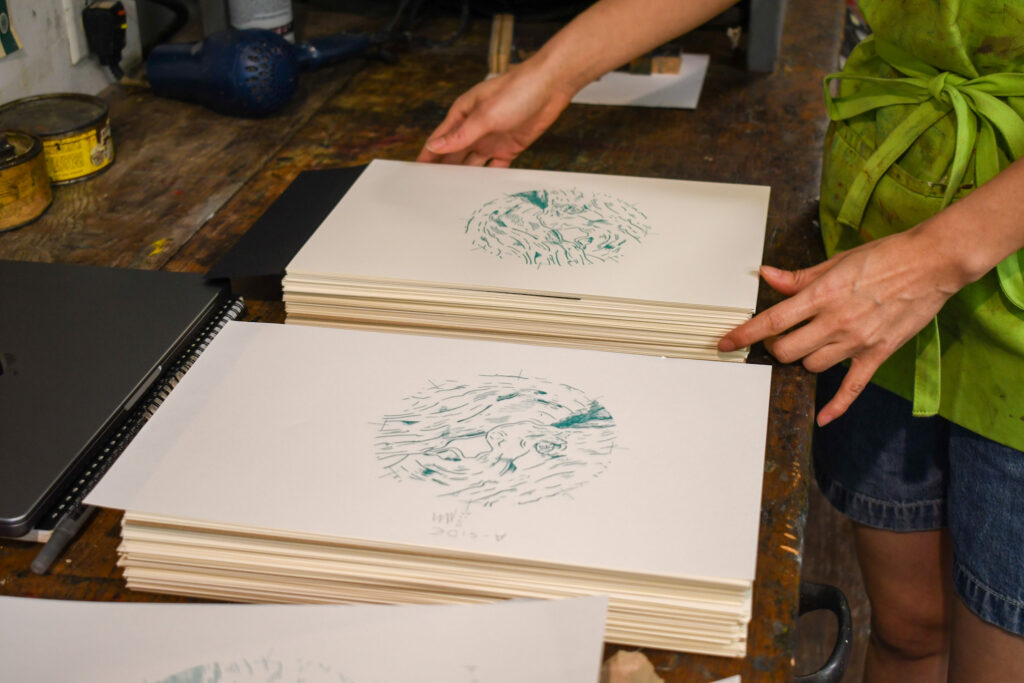
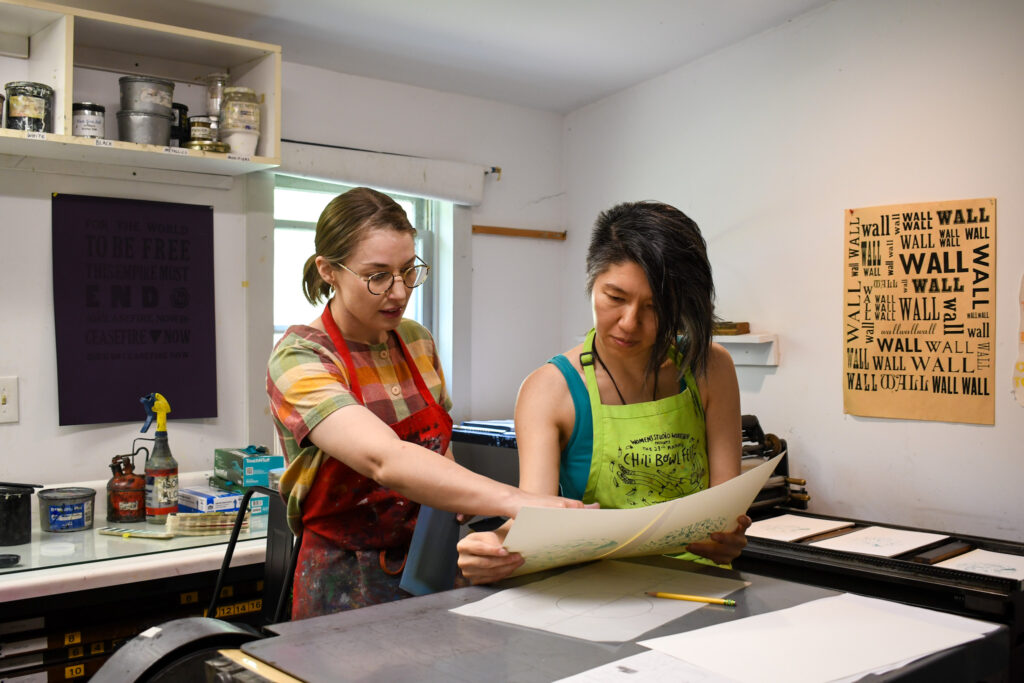
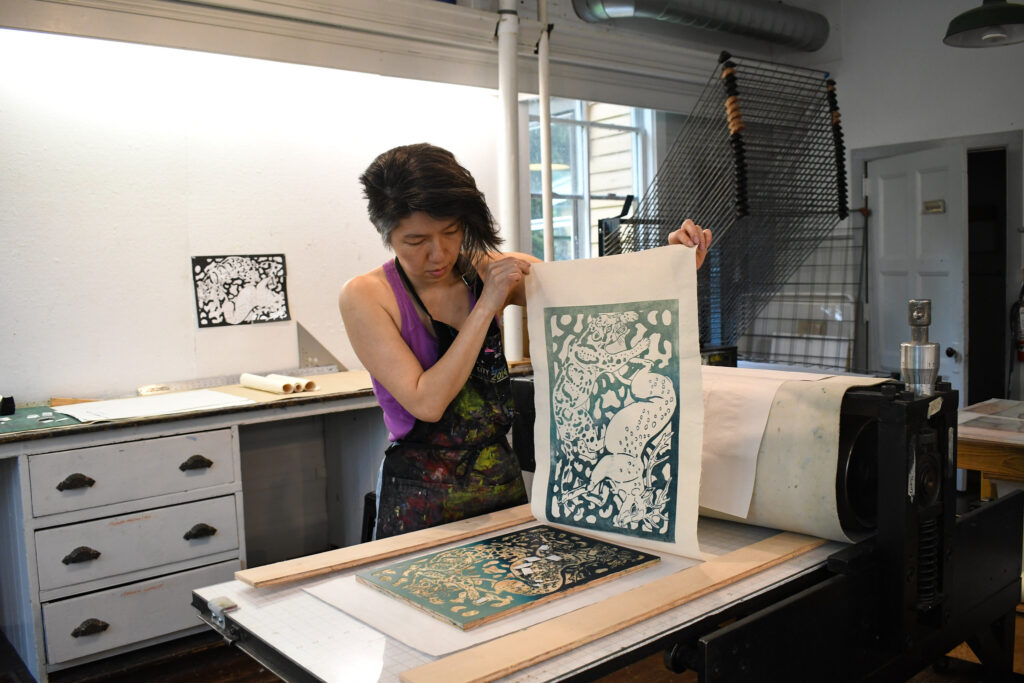
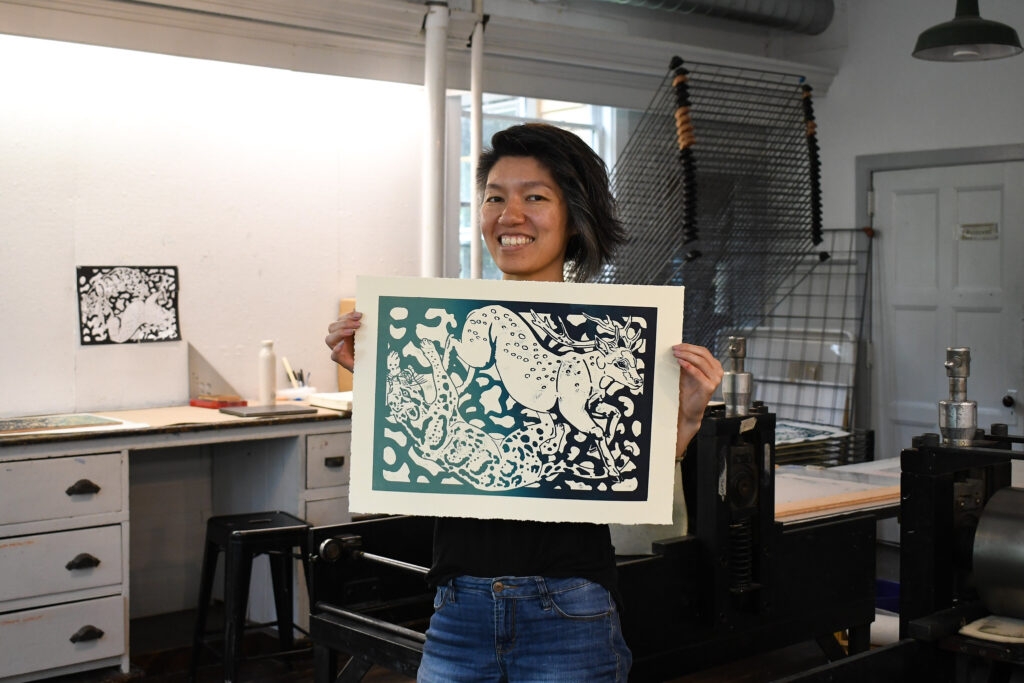
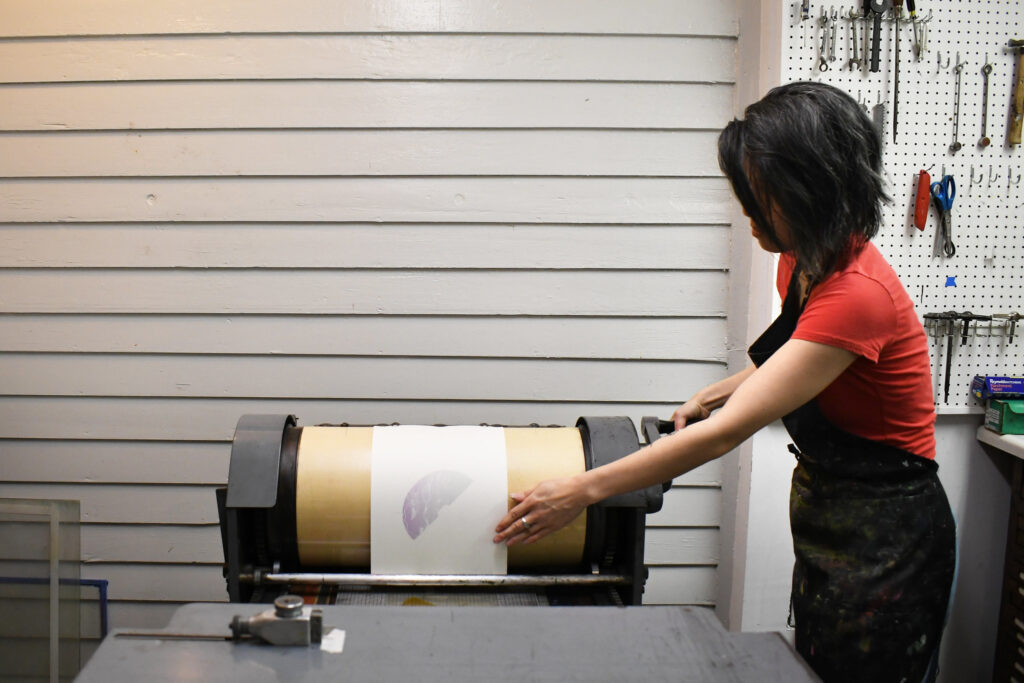
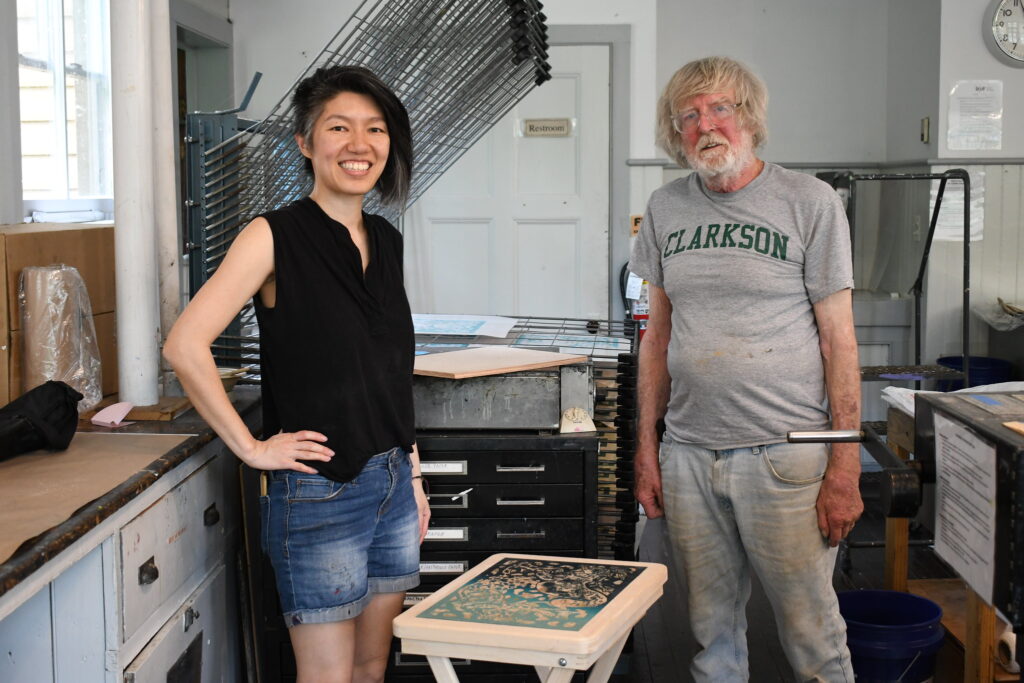
Above photos by Natalie Thomas at Women’s Studio Workshop.
The Stories Behind the Artworks
My mother lives in a rural area of Kansas surrounded by encroaching suburbanization. Since 2024, my spouse and I have taken turns visiting my mother to help her with house repairs and to assert our presence to overly inquisitive real estate developers and new neighbors.
An irony of my current ongoing series, The Negotiation Table, is that I did not grow up eating most meals at a family dining table. Whether we were at our family’s takeout restaurant or at home, my parents and I often ate alone. Now in my adulthood, my mother and I have meals together, but because her dining room is presently unusable, we eat while sitting across a TV tray table in her kitchen. In this modest and intimate setting, my mother steps into one of her most profound roles as our family’s knowledge keeper. Her stories—simultaneously historical, allegorical, almost mythic, and sometimes prophetic—come alive.
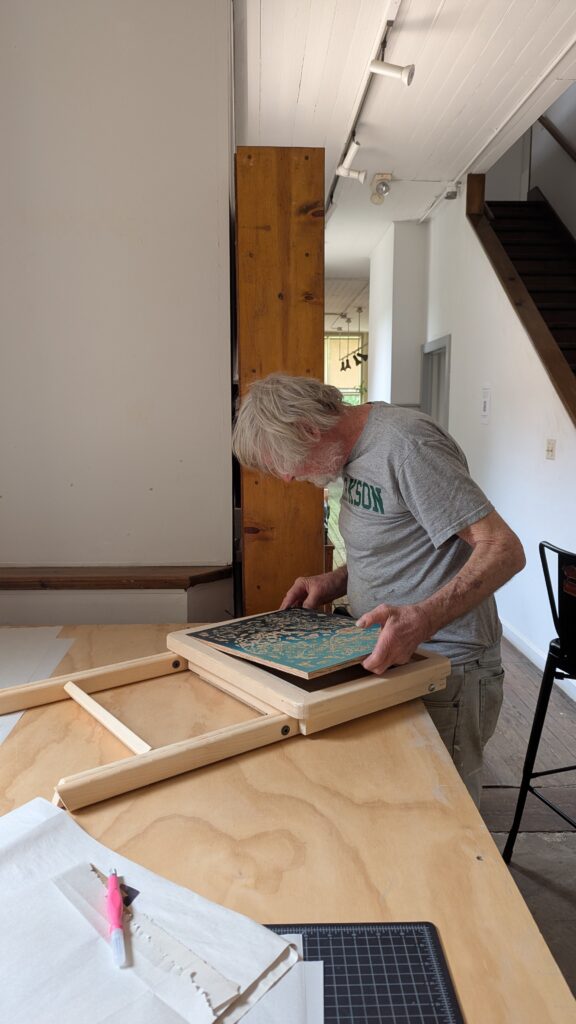
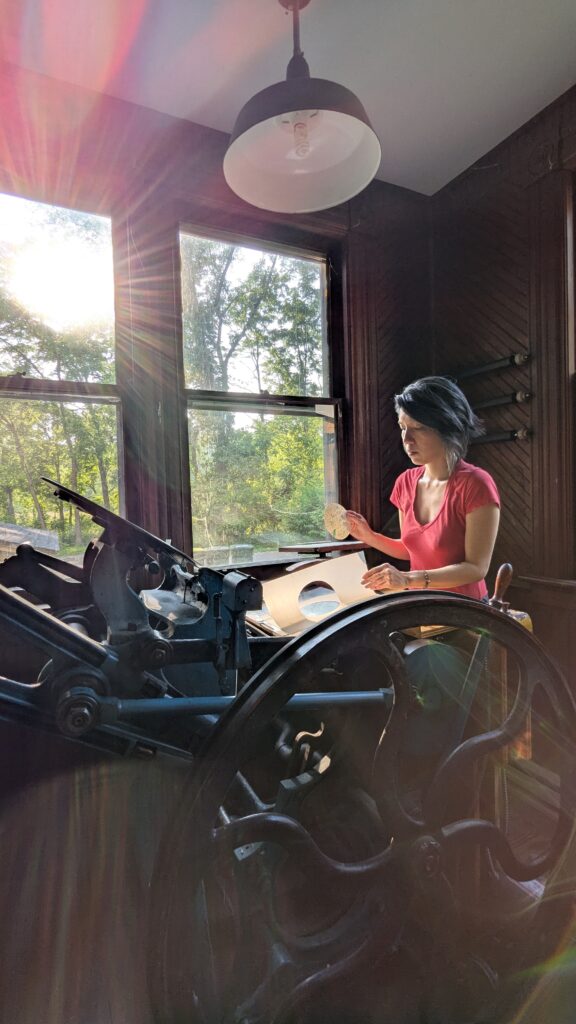
The Deer Garden (woodcut and table sculpture) and Yuǎn Yuàn (artists’ book) interweave stories about housing, land, and loss across three generations of my family.
As I record my mother’s knowledge about our familial histories—and their larger sociopolitical contexts—I find myself vacillating between striving for accuracy and embracing the fantastical. My prints reflect this cyclical tension, as I set up strict matrices and precise registrations for works that are inherently about the immeasurable and elusive magic of stories that can never—perhaps should never—be rendered quite perfectly.
